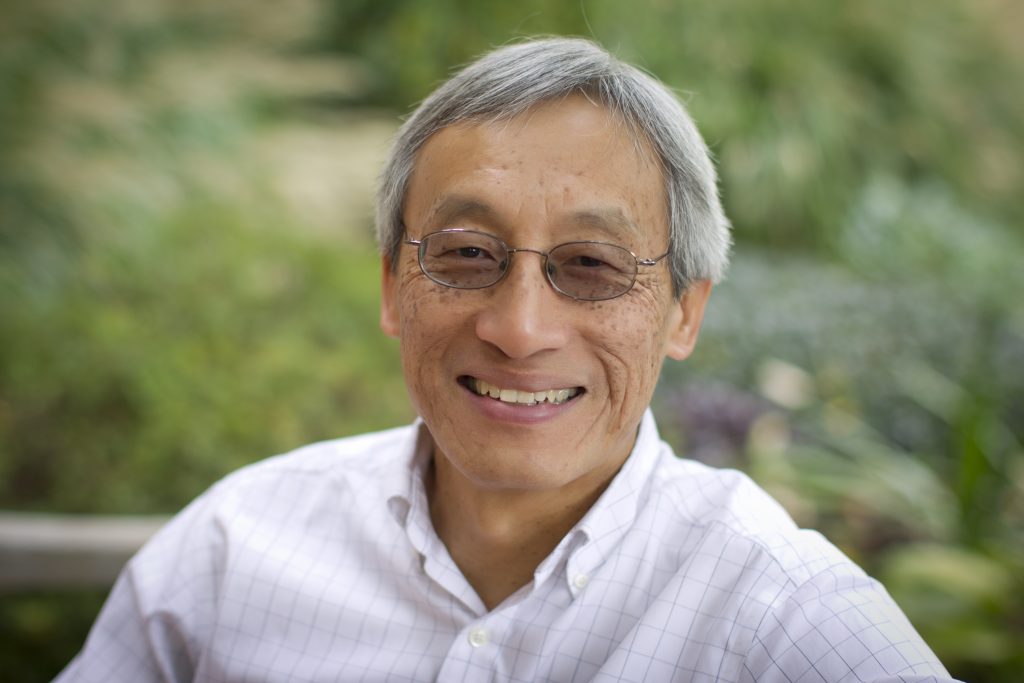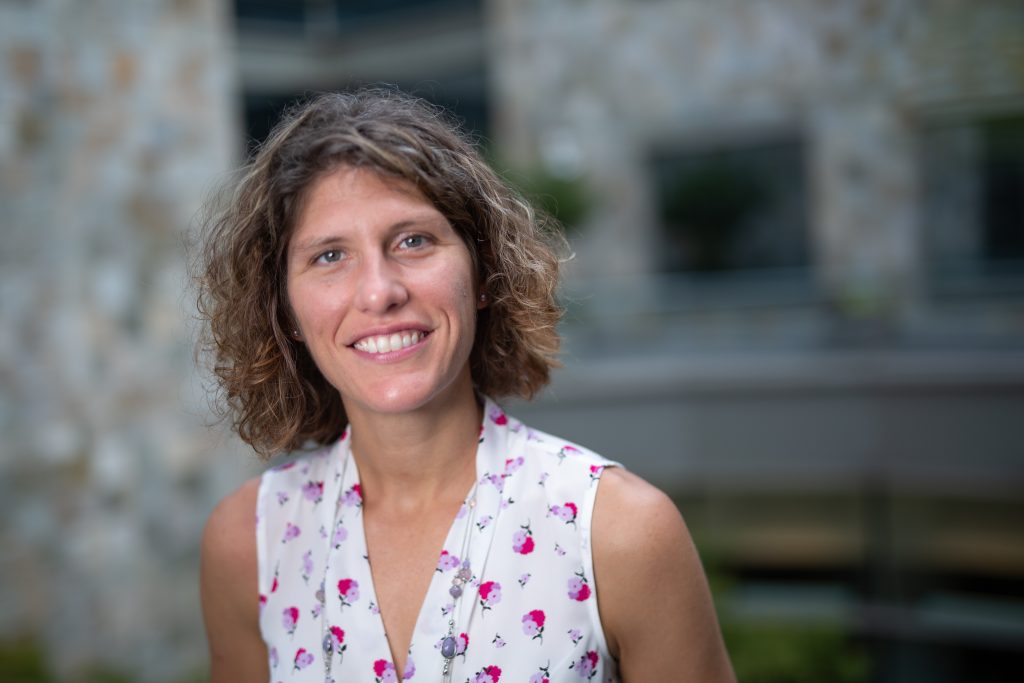UNC Lineberger Comprehensive Cancer Center has established the Pancreatic Cancer Center of Excellence to bring together cancer center faculty with a broad range of expertise — from laboratory, translational and clinical research to drug development, biostatistics, biomedical engineering and pharmacology to medical, radiation and surgical oncology — to focus on pancreatic cancer, one of the most aggressive and difficult to treat cancers.

Led by Autumn McRee, MD, a gastrointestinal medical oncologist, and Jen Jen Yeh, MD, a surgical oncologist, the center’s mission is to provide excellent multidisciplinary patient care and generate research discoveries that can be translated into new, more effective approaches and ultimately, cures for pancreatic cancer.
“The UNC Lineberger Pancreatic Cancer Center of Excellence formally brings together an outstanding group of researchers, clinicians and staff. Even though we are on one campus, we will have an even more unified and integrated way to think about pancreatic cancer,” said Yeh, who is an Oliver Smithies Investigator and vice chair for research in the Department of Surgery. “We now will have an infrastructure to connect people, to integrate innovative research findings with clinical care. This will enable us to diagnose pancreatic cancer better, to develop new treatments and to make better treatment decisions and improve quality of life.”
While the incidence of some cancers has declined in the United States during the past few decades, the number of pancreatic cancer cases has been increasing since 2000. The American Cancer Society estimates that more than 60,000 people in the U.S. will be diagnosed with pancreatic cancer this year, and more than 48,000 will die from the disease, making it the fourth leading cause of cancer deaths in the country. Pancreatic cancer has the lowest five-year survival rate of all major cancers. Only one in 10 people diagnosed with pancreatic cancer today will still be alive in five years.
“Pancreatic cancer is a truly unrelenting cancer, and until we can develop different approaches for early detection and for better local and systemic therapy, the outcomes will continue to be totally unacceptable,” said UNC Lineberger Director Shelley Earp, MD. “Our investment in the center of excellence leverages UNC Lineberger’s basic science, genomics, immunotherapy, biomedical engineering and clinical strengths to blaze a new path toward better patient-centered care and outcomes.”

Channing Der, PhD, Kenan Distinguished Professor in the UNC School of Medicine Department of Pharmacology and a UNC Lineberger member, is internationally renowned for his seminal research that demonstrated how mutations in the KRAS gene spurred the growth of pancreatic cancer. These same mutations may also prove to be the perfect target for novel treatments. He said establishing a formal pancreatic cancer center makes a clear statement to both patients and researchers that UNC Lineberger is committed to excellence in patient care and pancreatic cancer research.
“Progress in research relies on a community effort and bringing together researchers and clinicians, as well as the community organizations will be key for making an impact on this deadly cancer,” Der said. “Supporting research infrastructure to bring greater cohesion to the pancreatic cancer researchers will promote more formal research interactions and will position us better for opportunities centered on pancreatic cancer.”
McRee said scientific discoveries made at UNC Lineberger do have a direct impact on patient care. “Where UNC Lineberger really shines is in the collaborative translational work that brings science from the bench to the bedside. Three trials on which we are actively enrolling pancreatic cancer patients started with discoveries in the lab, and it didn’t just start at anybody’s lab. It started in labs right here at Lineberger,” she said. “To be able to tell a patient who believes there are no further treatment options available that, based on what we have discovered about how pancreatic cancers grow, we have another therapeutic approach is a really satisfying feeling.”

Case in point, two clinical trials based on laboratory discoveries made by Der and Kirsten Bryant, PhD, an assistant professor of pharmacology, are actively enrolling pancreatic cancer patients. An investigator-initiated trial led by McRee, is investigating a novel combination therapy for patients with KRAS mutated pancreatic cancer. Another study is evaluating a drug that blocks proteins activated by RAS with a drug that blocks a process called autophagy, an unusual way that cancer cells are metabolized. This clinical trial is being performed at Dana-Farber Cancer Institute as well as the North Carolina Cancer Hospital, the clinical home of UNC Lineberger. Another trial, based on pancreatic cancer subtypes discovered by Yeh, and developed into a clinical test by UNC Lineberger’s Margaret Gulley, MD, and Jason Merker, MD, PhD, will be the first trial to tailor treatment based on pancreatic cancer subtypes.
H.J. Kim, MD, the Ted B. Seagroves, Jr. Distinguished Professor, division chief of surgical oncology and UNC Lineberger member, said a comprehensive pancreatic cancer program that effectively joins multidisciplinary clinical care with basic and translational science and novel clinical trials is critical to developing more effective treatments.
“Although we have clearly made advances in technologies and techniques to improve surgical outcomes in pancreatic care, we will not make the incremental leaps to improve cancer outcomes without the investment in basic science research to understand the biology of this aggressive cancer and the clinical trials to define the future paradigms in how we approach these complicated patients safely and effectively,” Kim said.
Looking ahead, Yeh and McRee said philanthropic support will be critical to the center’s ability to conduct innovative research that leads to more effective therapies.
“Philanthropy is incredibly important because we can’t get enough funding fast enough through traditional grants and from external sources to support the research that we need to do,” Yeh said. “We have ideas on how to improve patient care, but we really want to improve the pace so we can get things to the clinic faster. Without philanthropy, we cannot move at the pace that we want and need to for patients.”
